Normally, children would immediately rush outside to gaze at the sky upon hearing the plane’s roar. They even favored playing with toy planes among their toys.
.
However, in the present situation, at the mere sound of an airplane flying overhead, they would hastily retreat to their homes or seek shelter, driven by fear and urgency.
Ma Ah Ngae, a mother with two kids, described the current situation: “Now, regardless of the children being engaged in play elsewhere, the moment they hear or see an airplane, they swiftly sprint back home.”
Ma Ah Ngae, a resident of Saung Phwe village in Pekone township, is a mother of two sons aged 4 and 5 years old respectively.
Tragically, on April 25, at 12:00 p.m., the military council carried out a bombing raid on the clinic and the refugee camp in Saung Phwe village, where over 300 internally displaced persons (IDPs) had sought refuge. The hospital was left completely devastated, resulting in injuries to a nurse, a child, and an IDP woman.
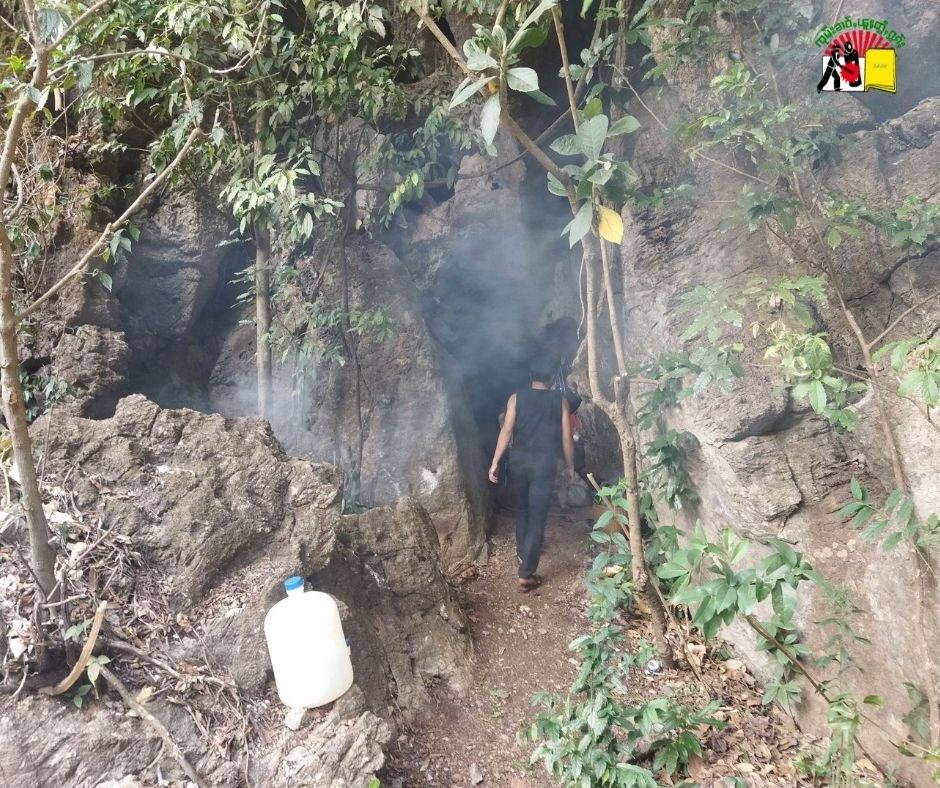
Ma Ah Ngae’s family was close by during the bombing attack and had to quickly leave to safety.
“We were inside the house, engaged in conversation while the children played outside. Suddenly, the horrifying sounds of the bombings reached our ears, and in that moment, my thoughts raced to the safety of my children. We immediately sought refuge in the bunker,” Ma Ah Ngae expressed sorrowfully.
Normally, the SAC’s planes would fly over Saung Phwe village nearly every day. Consequently, the villagers had become accustomed to the routine and did not anticipate the camps and residential areas would be targeted. Thus, whenever the planes flew overhead, they went about their daily activities as usual, assuming nothing would happen.
On that tragic day, however, the military council unpredictably began a bombardment with fighter jets, which terrified and frightened the IDPs. Parents hurriedly gathered their children and sought refuge in the bunkers.
“After spending some time in the bunker, fear forced us to flee to an even more secure location. As we ran, the unsettling sound of gunfire echoed from behind, intensifying our fright. The children now cry uncontrollably anytime they hear the noises of an airplane. They now live in constant terror; the mere sound of an aircraft triggers their distress, and they burst into tears,” explained Ma Ah Ngae with deep concern.
Ma Ah Ngae’s family originally resided in a village within Pekhon township. They were forced to move to Saung Phwe village, though, in November 2022 as a result of armed clashes between the State Administration Council (SAC) and the joint forces of local People’s Defense Forces.
Presently, her family finds refuge in the jungle of Pekon township, having endured numerous instances of frantically moving from one place to another in search of safety from the relentless bombardments and armed clashes.
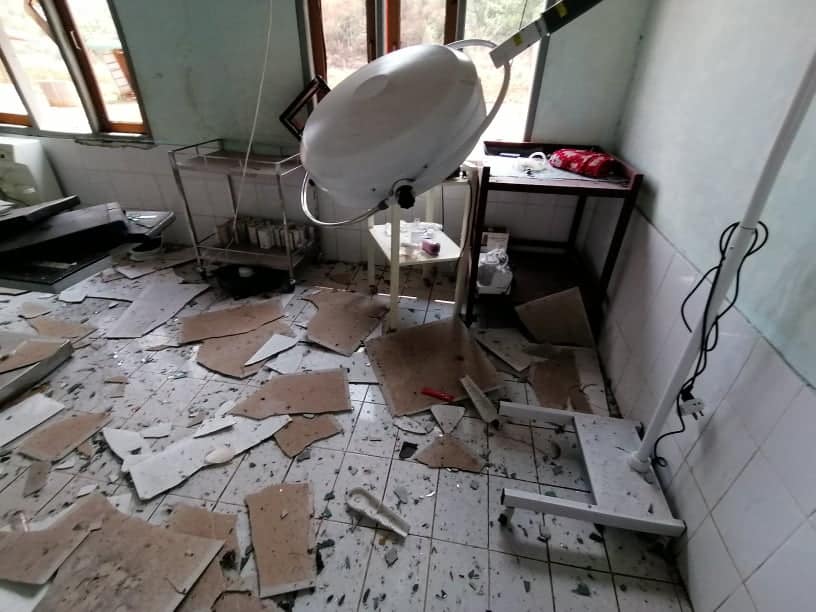
“We’ve been running away from here and there so frequently. We were halfway settled in Saung Phwe village when planes began to bombard the area”. Ma Ah Ngae stated in a shaky voice, “But now they have to create a tent and live in the jungle where they assume the SAC would not shell them.”
A border area where Shan State and Karenni State meet, Moe Pyae, Pekon, and Pin Laung area had been experiencing shelling almost every day, and the number of people killed in the airstrikes has reached hundreds up to date.
There is a fierce battle, which also includes the use of fighter jets such as Yar-130 by the SAC, between the Military Council and the People’s Defense (PDF) Joint forces in those areas.
To this day, the internally displaced persons (IDPs) continue to seek refuge in the forest, while others, with no alternative, are forced to return to the very camp that was bombed.
“People are scattered in different directions. Some have nowhere else to go, so they reluctantly return to the devastated camp. The lack of medical supplies is critical. No donors have been able to reach the area, and the destruction of clinics and hospitals has left nobody willing to stay there. Additionally, there is a severe shortage of funds, so when someone falls ill, they must make do with whatever limited resources are available for treatment,” Ma Ah Ngae expressed with deep concern.
On May 27, around 7:00 a.m., an unnerving explosion sound forced Ma Sanda (not her real name) and her family to flee for cover in a bunker. This was Ma Sanda’s first experience with a SAC-planned fighter jet bombing.
“I was completely horrified because I had never seen or experienced anything like it before. I quickly grabbed my kids and ran to the closest bunker as soon as I heard the deafening noises of the bombings. Six of us were crowded inside, including my two children”, Ma Sanda recalled as she described the terrifying event of being the target of aerial bombings.
Ma Sandar resides in Zay Kone ward, Nyaung Wine area, within the Pekon township. On that fateful day, there were no ongoing armed clashes between the People’s Defense Forces (PDFs) and the SAC. Shockingly, the SAC unilaterally resorted to shelling residential areas, indiscriminately shooting heavy weapons around the town.
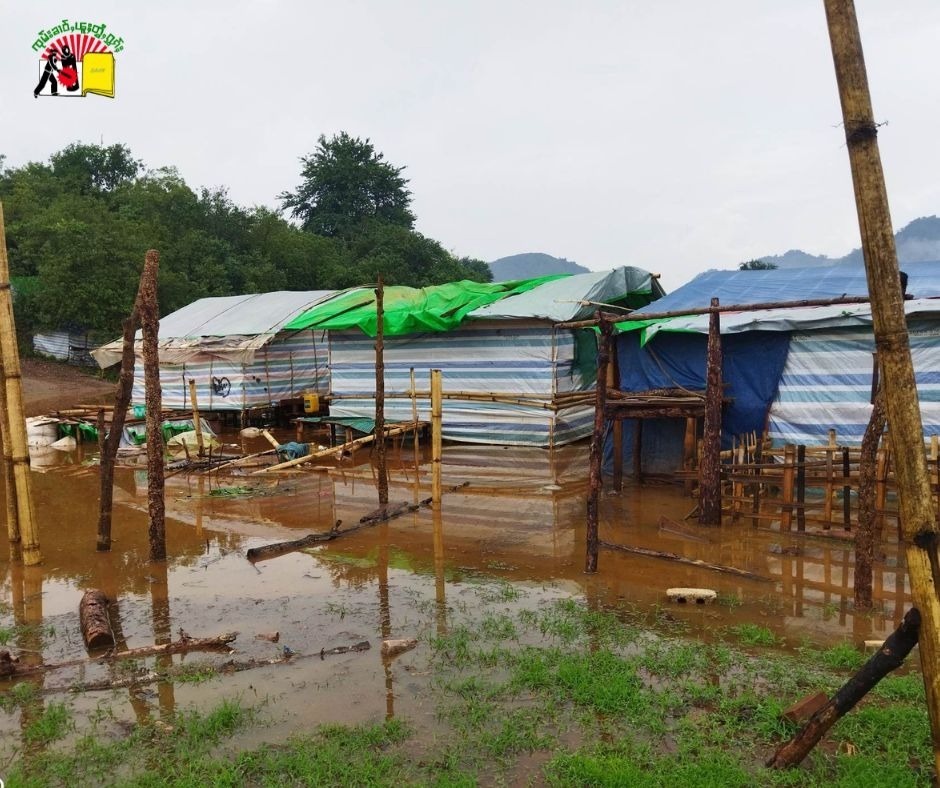
“They dropped 3 bombs in a row. My children were scared and crying, and I couldn’t bear to keep them in the bunker for too long. After about an hour had passed, we cautiously emerged to check for any signs of the planes. Once we confirmed that it was safe, we cautiously returned to the surface,” Ma Sandar shared their harrowing experience with a heavy heart.
On that dreadful day, the SAC’s LIB (422) stationed in Mo Pyae relentlessly fired at least 20 rounds of shells into Ward (3), a bustling neighborhood, resulting in the tragic death of a 3-year-old child.
As a consequence of her grievous experiences and the incessant bombardments carried out by the SAC, Ma Sandar finds it challenging to harbor strong feelings of resistance against the Military Council.
“We were just ordinary civilians before, leading peaceful lives. But now, despite being ordinary people, we have become targets. This has ignited a desire within me to fight back. If possible, I would seek support or funding for anti-aircraft weapons,” expressed Ma Sandar with determination.
In the past, although there were occasional clashes between the military council and the joint forces of the People’s Defense Forces (PDFs) in the area, the use of fighter jets and airstrikes had been relatively rare.
However, starting from the second half of 2023, the military council has significantly escalated the frequency of airstrikes, employing them more heavily to combat the armed PDF groups in the region. Bwe Hoong, who is responsible for the ground operations and information within the PNDF-KK, highlighted this concerning development.
Following the military coup, the Shan-Karenni border area, including Pin Laung, Pekon, and Moe Pyae townships, has become a hotspot for resistance movements, fierce armed clashes, and brutal suppressions by the military regime. According to a press release issued by the PKPF on June 1st, a total of 462 civilians have lost their lives in the past 28 months as a result of the regime’s brutal suppressions.
“It is challenging for the military to conduct infantry operations in this area. As a result, they heavily rely on aircraft and heavy artillery/weapons to carry out their attacks. The regime targets these areas because they perceive them as being under the control of the Karenni Democratic Front (KDF),” explained Ma Su Su, a member of the Karenni Democratic Front (KDF).
Based on PKPF’s records, the military council conducted 2 air-strikes in 2021, followed by a significant escalation to 182 in 2022. Shockingly, the attacks have surged even further in 2023, reaching a staggering 436 within just the first 5 months.
Su Su from the Karenni Democratic Front (KDF) revealed. “While shelling the front line might be understandable, it is utterly unacceptable to target areas where innocent civilians reside, with no involvement in the armed conflict. If the SAC regime is truly brave, they should face their adversaries directly on the ground,” she passionately emphasized.
The aircraft bombing have become distressingly routine, occurring during the early morning and at night, perpetuating an atmosphere of constant fear and anxiety among the IDPs.
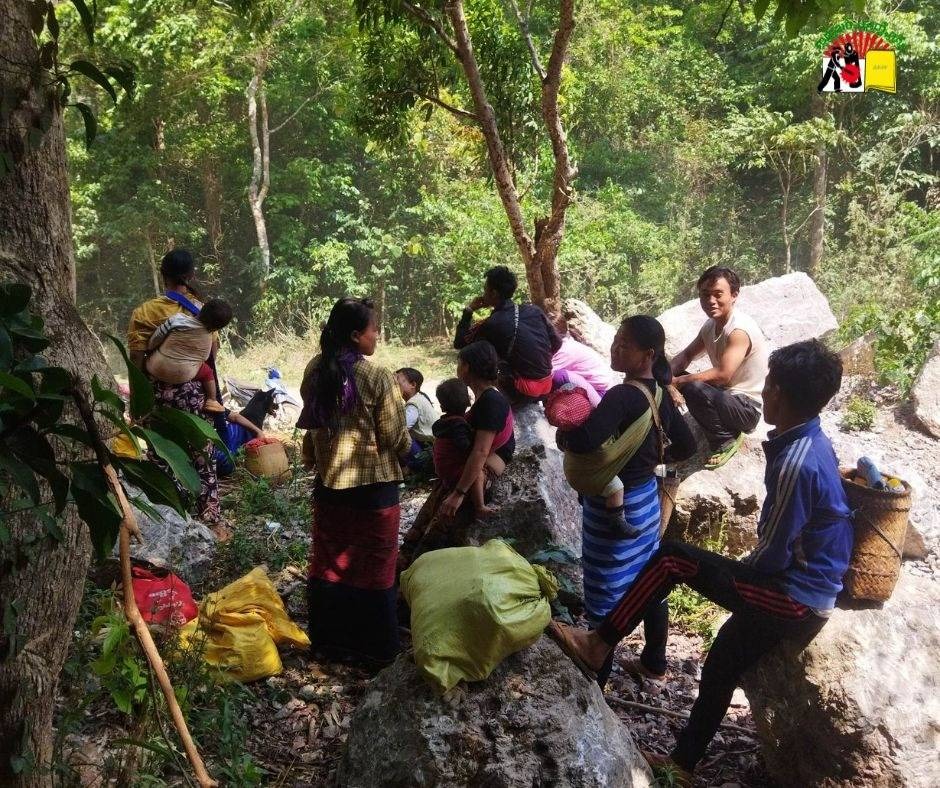
“Now that they are intensifying their attacks from the air, there’s nowhere safe for us. Some innocent people have endured bombings in their own homes, forcing them to flee to the perilous forest, fraught with dangers of snakes and scorpions. The SAC regime seems to prefer shelling around 3:00 or 4:00 am in the morning,” shared Mwe Oh (not real name), who sought refuge in one of the IDP camps within the Pinlaung-Pekon border area.
I’ve repeatedly had to escape from gunfires, shellings, and air strikes carried out by the military regime. Countless times, we found ourselves hiding in the forest, enduring hunger and sometimes crying along with my children.
“We had no choice but to flee from clashes and spend nights in the forest. There were moments when we had no food to eat. The children cried out of hunger, and in those helpless situations, all I could do was cry alongside them,” Ma Ah Ngae expressed, her voice trembling with emotion.
Ma Ah Ngae is extremely keen to see the resistance movement triumph quickly. She deeply despises the atrocities committed by the SAC regime, particularly the relentless targeting of civilians through airstrikes.
“I feel an overwhelming bitterness toward the SAC. When aircraft fly over us, we are left in a state of uncertainty, not knowing where to seek safety. They bombard us with aircraft almost every day. I want this resistance to put a stop to the misery.” Ma Ah Nge expressed with anguish.
At times, Ma Ah Nge finds herself contemplating the thought of death due to the overwhelming hopelessness and stress. However, when such thoughts arise, she draws strength from thinking about her two children, finding the determination to carry on.
Looking at her two sons, who tremble in fear and cry whenever they hear the sounds of aircraft, she is deeply concerned about the potential trauma they may carry into their adulthood. Therefore, every night, she sincerely prays for peace to be restored in Myanmar, hoping for a brighter and safer future for her country.





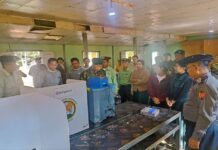
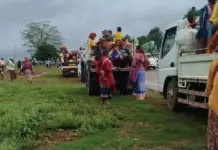
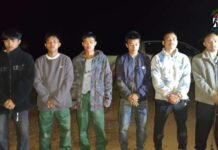
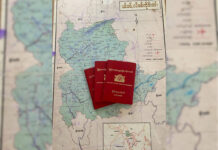





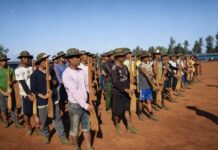

Leave a Comments